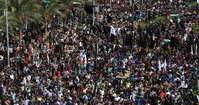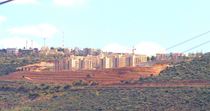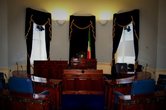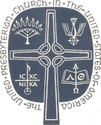12 july 2018

Daoud Shehab, leader of Islamic Jihad Movement in Palestine, said that Ireland’s senate decision banning the importation of products from Israeli settlements is an important step that exposes Israeli crimes, policies and measures for settlement expansion.
In a brief statement, Shehab called on Arabs and Muslims to boycott and accordingly isolate the Israeli occupation as well as to bear their responsibilities for confronting the Israeli unfair policies.
Earlier on Wednesday, Ireland’s senate voted in favor of a bill banning the importation of products from Israeli-occupied Palestinian territories, paving the way for the country to become the first EU nation to enforce a boycott.
In a brief statement, Shehab called on Arabs and Muslims to boycott and accordingly isolate the Israeli occupation as well as to bear their responsibilities for confronting the Israeli unfair policies.
Earlier on Wednesday, Ireland’s senate voted in favor of a bill banning the importation of products from Israeli-occupied Palestinian territories, paving the way for the country to become the first EU nation to enforce a boycott.

Amnesty International welcomed the legislative efforts made by Ireland to prohibit certain economic activities with illegal settlements in territories deemed occupied under international law, such as the Occupied Palestinian Territories.
“Business activities in or with illegal settlements, such as the trade in settlement goods and services, contribute to the economy of these settlements and therefore to their viability, development and expansion”, said Amnesty International. “States that promote or allow these activities are at least implicitly conferring recognition to an illegal situation and assisting in its maintenance, therefore acting against their international obligations not to recognize as lawful and not to assist in an illegal situation (the establishment of settlements by an occupying power in occupied territory).”
“This is why Amnesty International is calling on states to ban the import of goods from Israel’s illegal settlement in the Occupied Palestinian Territories and to prohibit companies domiciled in their territory from operating in Israel’s settlements or trading in Israeli settlements’ goods and services”, the organization added.
Amnesty International lauded the Control of Economic Activity (Occupied Territories) Bill 2018 as an important step towards Ireland complying with its international obligations not to recognize and not to assist in an illegal situation under international law and its obligation to ensure respect for the Geneva Conventions.
“Business activities in or with illegal settlements, such as the trade in settlement goods and services, contribute to the economy of these settlements and therefore to their viability, development and expansion”, said Amnesty International. “States that promote or allow these activities are at least implicitly conferring recognition to an illegal situation and assisting in its maintenance, therefore acting against their international obligations not to recognize as lawful and not to assist in an illegal situation (the establishment of settlements by an occupying power in occupied territory).”
“This is why Amnesty International is calling on states to ban the import of goods from Israel’s illegal settlement in the Occupied Palestinian Territories and to prohibit companies domiciled in their territory from operating in Israel’s settlements or trading in Israeli settlements’ goods and services”, the organization added.
Amnesty International lauded the Control of Economic Activity (Occupied Territories) Bill 2018 as an important step towards Ireland complying with its international obligations not to recognize and not to assist in an illegal situation under international law and its obligation to ensure respect for the Geneva Conventions.
11 july 2018

The upper house of the Irish parliament, the Seanad Éireann, voted on July 11, in favor of a bill to ban the purchase of goods and services from illegal Israeli settlements.
The “Control of Economic Activity (Occupied Territories) Bill 2018” was put forward by Irish Independent Senator Frances Black and co-signed by Senators Alice-Mary Higgins, Lynn Ruane, Colette Kelleher, John G Dolan, Grace O’Sullivan and David Norrison, on January 24 of this year.
However, according to Al Ray, the Seanad voted to delay the debate indefinitely after Israel protested, as Israeli Prime Minister Benjamin Netanyahu summoned the Irish ambassador to Israeli occupation, Alison Kelly, who explained that the Irish government did not support the bill.
Netanyahu had claimed the bill sought to “harm the state of Israel” and was an attempt to support the Boycott, Divestment and Sanctions (BDS) movement.
The proposed law passed 25 to 20, and was introduced by an independent senator, drawing support from all of Ireland’s major political parties except the governing Fine Gael party, according to the Hebron Defense Committee.
If passed, the bill will have to go through several more stages of review and amendment before it is signed into a law. The bill will now go to the lower house of parliament for a debate and vote.
Israeli settlements in both the occupied West Bank and the Golan Heights are illegal and constitute a war crime under both the Rome Statute of the International Criminal Court and International Humanitarian Law (IHL), which prohibit occupying states from transferring their own civilian population into occupied territory.
The “Control of Economic Activity (Occupied Territories) Bill 2018” was put forward by Irish Independent Senator Frances Black and co-signed by Senators Alice-Mary Higgins, Lynn Ruane, Colette Kelleher, John G Dolan, Grace O’Sullivan and David Norrison, on January 24 of this year.
However, according to Al Ray, the Seanad voted to delay the debate indefinitely after Israel protested, as Israeli Prime Minister Benjamin Netanyahu summoned the Irish ambassador to Israeli occupation, Alison Kelly, who explained that the Irish government did not support the bill.
Netanyahu had claimed the bill sought to “harm the state of Israel” and was an attempt to support the Boycott, Divestment and Sanctions (BDS) movement.
The proposed law passed 25 to 20, and was introduced by an independent senator, drawing support from all of Ireland’s major political parties except the governing Fine Gael party, according to the Hebron Defense Committee.
If passed, the bill will have to go through several more stages of review and amendment before it is signed into a law. The bill will now go to the lower house of parliament for a debate and vote.
Israeli settlements in both the occupied West Bank and the Golan Heights are illegal and constitute a war crime under both the Rome Statute of the International Criminal Court and International Humanitarian Law (IHL), which prohibit occupying states from transferring their own civilian population into occupied territory.

Ireland’s Senate will vote Wednesday on a bill to boycott products from West Bank settlements, despite opposition from the Irish government.
The bill is slated to pass on Wednesday, in a move aiming to boycott products manufactures in Israeli settlements built on occupied Palestinian land.
The Irish government has made it clear it opposes the anti-Israel legislation, but independent and opposition lawmakers are seen as likely to back it up.
The bill is slated to pass on Wednesday, in a move aiming to boycott products manufactures in Israeli settlements built on occupied Palestinian land.
The Irish government has made it clear it opposes the anti-Israel legislation, but independent and opposition lawmakers are seen as likely to back it up.
6 july 2018

July 5, 2018 / Palestinian Boycott, Divestment and Sanctions National Committee (BNC)
The Council of the Socialist International (SI) has called for Boycott, Divestment and Sanctions (BDS) for Palestinian rights at their meeting in the United Nations in Geneva on June 26-27. SI also called for a “total embargo on all forms of military trade and cooperation with Israel.”
Socialist International brings together 140 global political parties, including 35 parties in government in South Africa, Argentina, Spain, Colombia, Portugal, Tanzania, Luxemburg, Romania, Iraq and elsewhere.
The SI has reaffirmed the Palestinian people’s right to self-determination and called on governments and civil organizations to “activate Boycott, divestment and sanctions (BDS) against the Israeli occupation.” It called for the “total embargo on all forms of military trade and cooperation with Israel as long as it continues its policies of occupation and Apartheid against the people of Palestine.”
SI strongly condemned Israel’s “racist laws,” and expressed its solidarity with Palestinian citizens of Israel, who “continu[e] to live under a system of institutionalized discrimination.”
Mahmoud Nawajaa, General Coordinator of the Palestinian BDS National Committee, the leadership of the global BDS movement, said:
Given its sheer size and global reach, Socialist International’s call for sanctions against Israel is a game-changer in the global BDS movement.
It is the most significant call for sanctions against Israel to date since BDS was launched in 2005. BDS activists expect it to blow wind in the sails of the BDS movement and in particular, to mainstream the call for a military embargo on Israel after its massacre of over 130 unarmed protesters in Gaza in May.
We deeply value Socialist International’s principled solidarity with the people of Palestine and salute them for taking concrete measures to hold Israel accountable for its decades-old regime of military occupation, colonialism and apartheid.
We look forward to the implementation of this momentous declaration in SI members’ home countries.
The Palestinian BDS National Committee (BNC) is the largest coalition in Palestinian civil society. It leads and supports the global Boycott, Divestment and Sanctions movement for Palestinian rights.
The Council of the Socialist International (SI) has called for Boycott, Divestment and Sanctions (BDS) for Palestinian rights at their meeting in the United Nations in Geneva on June 26-27. SI also called for a “total embargo on all forms of military trade and cooperation with Israel.”
Socialist International brings together 140 global political parties, including 35 parties in government in South Africa, Argentina, Spain, Colombia, Portugal, Tanzania, Luxemburg, Romania, Iraq and elsewhere.
The SI has reaffirmed the Palestinian people’s right to self-determination and called on governments and civil organizations to “activate Boycott, divestment and sanctions (BDS) against the Israeli occupation.” It called for the “total embargo on all forms of military trade and cooperation with Israel as long as it continues its policies of occupation and Apartheid against the people of Palestine.”
SI strongly condemned Israel’s “racist laws,” and expressed its solidarity with Palestinian citizens of Israel, who “continu[e] to live under a system of institutionalized discrimination.”
Mahmoud Nawajaa, General Coordinator of the Palestinian BDS National Committee, the leadership of the global BDS movement, said:
Given its sheer size and global reach, Socialist International’s call for sanctions against Israel is a game-changer in the global BDS movement.
It is the most significant call for sanctions against Israel to date since BDS was launched in 2005. BDS activists expect it to blow wind in the sails of the BDS movement and in particular, to mainstream the call for a military embargo on Israel after its massacre of over 130 unarmed protesters in Gaza in May.
We deeply value Socialist International’s principled solidarity with the people of Palestine and salute them for taking concrete measures to hold Israel accountable for its decades-old regime of military occupation, colonialism and apartheid.
We look forward to the implementation of this momentous declaration in SI members’ home countries.
The Palestinian BDS National Committee (BNC) is the largest coalition in Palestinian civil society. It leads and supports the global Boycott, Divestment and Sanctions movement for Palestinian rights.
3 july 2018

Ariel Gold, a member of Code Pink for Peace and an outspoken proponent of the Boycott, Divestment and Sanctions (BDS) movement in the U.S., was detained at the airport in Tel Aviv, Israel on Sunday, and was denied entry and sent back to the U.S.
The movement that Gold is a part of, the Boycott, Divestment and Sanctions (BDS) Movement, is aimed at pressuring Israel economically to get the government of Israel to adhere to its obligations under international law and signed agreements.
She has been a prominent and outspoken proponent of Palestinian rights, and despite her deep ancestral connection to Judaism – her family can trace its lineage back to 16th-century Rabbi Yosef Caro, author of the “Shulchan Aruch” (the codification of Jewish religious law), who is buried in Safed, Israel – the Israeli government has deemed Gold to be a ‘security threat’.
Though she has never broken Israeli law, and is steadfastly committed to nonviolence, the Israeli government considers her political views to be a threat – essentially charging her with a ‘thought crime’ for critiquing Israel’s policies.
Gold had been told the last time she left Israel that she would need to notify the Israeli Ministry of the Interior the next time she came to Israel. She obtained a student visa to study Jewish Studies at Hebrew University, and notified the Ministry of Interior as they requested.
But despite that fact, she was deported and her passport stamped with a denial of entry, after 8 hours of interrogation and detention at the Ben Gurion Airport.
Her student visa was canceled and the Minister of Interior Arye Deri weighed in on the case personally, stating, “Gold has distributed videos on social networks, in which she harasses IDF soldiers and Border Police officers in Hebron, accusing the soldiers of apartheid and oppression, and that their actions do not conform to Jewish values”.
With this statement, the Interior Ministry made clear that the reason Gold was denied entry was the ‘thought crime’ of criticizing Israeli policies and practices.
Gold stated that the Israeli officials who denied her entry gave her only one reason for her denial of entry, that she “lied about her reason for entry”.
Gold adamantly denied that claim, saying that she was planning to participate in a course at the Hebrew University in Jerusalem on “collective memory in Israel.”
The Israeli Minister of the Interior stated, “I am again using my authority to prevent the entry into Israel of a woman who came to act against Israel and call for its boycott. This is a Jew who tried to abuse this fact. Those boycott activists must understand that the rules of the game have changed. [They] will no longer be allowed to enter the country to harm the state and its residents.”
The Minister’s statement continued, “The policy I have set is clear: Whoever consistently acts to boycott Israel will not enter here. The rules have changed, and the State of Israel will not restrain itself against those who try to harm it.”
The movement that Gold is a part of, the Boycott, Divestment and Sanctions (BDS) Movement, is aimed at pressuring Israel economically to get the government of Israel to adhere to its obligations under international law and signed agreements.
She has been a prominent and outspoken proponent of Palestinian rights, and despite her deep ancestral connection to Judaism – her family can trace its lineage back to 16th-century Rabbi Yosef Caro, author of the “Shulchan Aruch” (the codification of Jewish religious law), who is buried in Safed, Israel – the Israeli government has deemed Gold to be a ‘security threat’.
Though she has never broken Israeli law, and is steadfastly committed to nonviolence, the Israeli government considers her political views to be a threat – essentially charging her with a ‘thought crime’ for critiquing Israel’s policies.
Gold had been told the last time she left Israel that she would need to notify the Israeli Ministry of the Interior the next time she came to Israel. She obtained a student visa to study Jewish Studies at Hebrew University, and notified the Ministry of Interior as they requested.
But despite that fact, she was deported and her passport stamped with a denial of entry, after 8 hours of interrogation and detention at the Ben Gurion Airport.
Her student visa was canceled and the Minister of Interior Arye Deri weighed in on the case personally, stating, “Gold has distributed videos on social networks, in which she harasses IDF soldiers and Border Police officers in Hebron, accusing the soldiers of apartheid and oppression, and that their actions do not conform to Jewish values”.
With this statement, the Interior Ministry made clear that the reason Gold was denied entry was the ‘thought crime’ of criticizing Israeli policies and practices.
Gold stated that the Israeli officials who denied her entry gave her only one reason for her denial of entry, that she “lied about her reason for entry”.
Gold adamantly denied that claim, saying that she was planning to participate in a course at the Hebrew University in Jerusalem on “collective memory in Israel.”
The Israeli Minister of the Interior stated, “I am again using my authority to prevent the entry into Israel of a woman who came to act against Israel and call for its boycott. This is a Jew who tried to abuse this fact. Those boycott activists must understand that the rules of the game have changed. [They] will no longer be allowed to enter the country to harm the state and its residents.”
The Minister’s statement continued, “The policy I have set is clear: Whoever consistently acts to boycott Israel will not enter here. The rules have changed, and the State of Israel will not restrain itself against those who try to harm it.”
26 june 2018

Adidas responded to the March 12, 2018 letter from more than 130 Palestinian football clubs and sports associations demanding that Adidas drops its sponsorship of the Israel Football Association (IFA), which hosts clubs based in Israel’s illegal settlements.
We welcome Adidas’ commitment to “uphold human rights standards and norms,” and its call on FIFA to respect human rights and international law “on the question of the Israeli settlement teams.”
We appeal to Adidas to follow its own advice: to respect international law and Palestinian human rights by ending its sponsorship of the IFA as long as it hosts clubs based in illegal Israeli settlements.
Israeli settlements violate Palestinian human rights. They are built on stolen Palestinian land and restrict Palestinians’ freedom of movement and access to water, fertile lands and livelihoods.
Furthermore, according to the Fourth Geneva Convention, Israeli settlements are war crimes. This makes Adidas complicit in serious Israeli human rights violations through its IFA sponsorship.
Adidas’ letter also says, “Adidas acts in a politically neutral way.” But as South African anti-apartheid leader Archbishop Desmond Tutu once said: “If you are neutral in situations of injustice, you have chosen the side of the oppressor.” Adidas is not merely selling its products to the national football association of a state that is involved in a decades-long illegal occupation and the grave violations of human rights entailed in it. It is sponsoring it. Adidas, therefore, is anything but “politically neutral” in this case.
In fact, Adidas has failed to end its sponsorship of the Israel Football Association even when Israeli snipers shot 23-year-old footballer Mohammad Khalil Obeid in both legs and 21-year-old cyclist Alaa Al-Daly in his right leg, which had to be amputated. Both their professional careers were ended by Israeli bullets. Obeid told Amnesty International, “As a Palestinian [football] player my life has been destroyed… I was dreaming of playing football abroad, and to raise the Palestinian flag abroad.”
Clinging on to hope and insisting on fulfilling their passion for the beautiful game, Palestinian amputees, who have lost limbs in Israel’s repeated attacks on Gaza, have recently formed a football club.
Adidas says it works in accordance with the UN’s Guiding Principles. It is based on these guiding principles that the UN Human Rights Council has established a database of companies complicit in Israel’s occupation. Adidas risks being included in this database. The sponsorship will not only make it target of popular boycott but also of institutional divestment campaigns including at the state level.
On its web site, Adidas states [PDF] that where it finds “potential or actual adverse impacts” on human rights, it is “committed to mitigate or eliminate those impacts” and that it does so “to fulfil a basic obligation as a responsible business, that is, to do no harmwhen it comes to the exercise and fulfilment of human rights.”
Adidas ended its sponsorship of the International Association of Athletics Federations following the doping and corruption scandals.
We urge Adidas to “do no harm” to Palestinian human rights, and to cancel its complicit sponsorship of the Israel Football Association.
Palestinian Campaign for Academic and Cultural Boycott of Israel (PACBI)
Human Interest 06/16/18: Nisreen Azzeh: ‘I am here, I resist.’
We welcome Adidas’ commitment to “uphold human rights standards and norms,” and its call on FIFA to respect human rights and international law “on the question of the Israeli settlement teams.”
We appeal to Adidas to follow its own advice: to respect international law and Palestinian human rights by ending its sponsorship of the IFA as long as it hosts clubs based in illegal Israeli settlements.
Israeli settlements violate Palestinian human rights. They are built on stolen Palestinian land and restrict Palestinians’ freedom of movement and access to water, fertile lands and livelihoods.
Furthermore, according to the Fourth Geneva Convention, Israeli settlements are war crimes. This makes Adidas complicit in serious Israeli human rights violations through its IFA sponsorship.
Adidas’ letter also says, “Adidas acts in a politically neutral way.” But as South African anti-apartheid leader Archbishop Desmond Tutu once said: “If you are neutral in situations of injustice, you have chosen the side of the oppressor.” Adidas is not merely selling its products to the national football association of a state that is involved in a decades-long illegal occupation and the grave violations of human rights entailed in it. It is sponsoring it. Adidas, therefore, is anything but “politically neutral” in this case.
In fact, Adidas has failed to end its sponsorship of the Israel Football Association even when Israeli snipers shot 23-year-old footballer Mohammad Khalil Obeid in both legs and 21-year-old cyclist Alaa Al-Daly in his right leg, which had to be amputated. Both their professional careers were ended by Israeli bullets. Obeid told Amnesty International, “As a Palestinian [football] player my life has been destroyed… I was dreaming of playing football abroad, and to raise the Palestinian flag abroad.”
Clinging on to hope and insisting on fulfilling their passion for the beautiful game, Palestinian amputees, who have lost limbs in Israel’s repeated attacks on Gaza, have recently formed a football club.
Adidas says it works in accordance with the UN’s Guiding Principles. It is based on these guiding principles that the UN Human Rights Council has established a database of companies complicit in Israel’s occupation. Adidas risks being included in this database. The sponsorship will not only make it target of popular boycott but also of institutional divestment campaigns including at the state level.
On its web site, Adidas states [PDF] that where it finds “potential or actual adverse impacts” on human rights, it is “committed to mitigate or eliminate those impacts” and that it does so “to fulfil a basic obligation as a responsible business, that is, to do no harmwhen it comes to the exercise and fulfilment of human rights.”
Adidas ended its sponsorship of the International Association of Athletics Federations following the doping and corruption scandals.
We urge Adidas to “do no harm” to Palestinian human rights, and to cancel its complicit sponsorship of the Israel Football Association.
Palestinian Campaign for Academic and Cultural Boycott of Israel (PACBI)
Human Interest 06/16/18: Nisreen Azzeh: ‘I am here, I resist.’
|
|
CODEPINK organizer Ariel Gold discusses with TRNN’s Ben Norton why she supports BDS and the movement for Palestinian rights: “The actions of the state of Israel do not represent my values as an American Jew.”
|
23 june 2018

The General Assembly of the Presbyterian Church in the United States approved, during its meeting last week in St. Louis, Missouri, by unanimous consent, an action opposing congressional and state anti-BDS (Boycott, Divest, and Sanction) laws, according to a press release.
According to WAFA, the newly approved policy directs the Presbyterian Church (USA) to “oppose specific US legislation to suppress measures of economic witness…such as ‘The Israel Anti-Boycott Act’.”
The action further instructs the church to join in legislation opposing state anti-BDS laws through the filing of amicus curiae briefs, in coalition with other religious and human rights groups.
Some two-dozen laws have been passed, in Congress and states across the country, that are designed to suppress BDS campaigns in protest of Israel’s abuses of Palestinian human rights. The American Civil Liberties Union (ACLU) and other civil liberties groups have condemned these laws as un-constitutional and an infringement on the First Amendment right to free speech.
Earlier this year, in the first decision of its kind, a Kansas judge blocked an anti-BDS law in that state, deeming it un-constitutional. In recent years, a number of US faith groups and churches, including the Presbyterian Church (USA) have adopted boycotts and divested from companies that profit from Israel’s abuses of Palestinian human rights.
In other actions last week, the Presbyterian Church (USA) defended the free exchange of ideas on Israel/Palestine, refusing to accept a prohibition on describing the occupation of the West Bank, East Jerusalem, and Gaza as “a colonial project.” The church also, by unanimous consent, declined to censor a recent publication from its Israel/Palestine Mission Network entitled Why Palestine Matters: The Struggle to End Colonialism.
The General Assembly considered additional actions relating to Israel/Palestine including a resolution expressing “profound grief and sorrow” for the deaths of 131 Palestinians during the recent protests surrounding the Great March of Return, deploring Israel’s “targeting of more than 20 clearly marked Palestinian medics serving the wounded,” one advocating for equal rights for Palestinian citizens of Israel, and one calling on RE/MAX to stop facilitating the sale of properties in settlements built on occupied Palestinian land in violation of international law.
The Israel/Palestine Mission Network of the Presbyterian Church (USA) is a mission network of the Presbyterian Church (USA) with a mandate from the denomination’s General Assembly (2004) to work “toward specific mission goals that will create currents of wider and deeper involvement with Israel/Palestine.”
According to WAFA, the newly approved policy directs the Presbyterian Church (USA) to “oppose specific US legislation to suppress measures of economic witness…such as ‘The Israel Anti-Boycott Act’.”
The action further instructs the church to join in legislation opposing state anti-BDS laws through the filing of amicus curiae briefs, in coalition with other religious and human rights groups.
Some two-dozen laws have been passed, in Congress and states across the country, that are designed to suppress BDS campaigns in protest of Israel’s abuses of Palestinian human rights. The American Civil Liberties Union (ACLU) and other civil liberties groups have condemned these laws as un-constitutional and an infringement on the First Amendment right to free speech.
Earlier this year, in the first decision of its kind, a Kansas judge blocked an anti-BDS law in that state, deeming it un-constitutional. In recent years, a number of US faith groups and churches, including the Presbyterian Church (USA) have adopted boycotts and divested from companies that profit from Israel’s abuses of Palestinian human rights.
In other actions last week, the Presbyterian Church (USA) defended the free exchange of ideas on Israel/Palestine, refusing to accept a prohibition on describing the occupation of the West Bank, East Jerusalem, and Gaza as “a colonial project.” The church also, by unanimous consent, declined to censor a recent publication from its Israel/Palestine Mission Network entitled Why Palestine Matters: The Struggle to End Colonialism.
The General Assembly considered additional actions relating to Israel/Palestine including a resolution expressing “profound grief and sorrow” for the deaths of 131 Palestinians during the recent protests surrounding the Great March of Return, deploring Israel’s “targeting of more than 20 clearly marked Palestinian medics serving the wounded,” one advocating for equal rights for Palestinian citizens of Israel, and one calling on RE/MAX to stop facilitating the sale of properties in settlements built on occupied Palestinian land in violation of international law.
The Israel/Palestine Mission Network of the Presbyterian Church (USA) is a mission network of the Presbyterian Church (USA) with a mandate from the denomination’s General Assembly (2004) to work “toward specific mission goals that will create currents of wider and deeper involvement with Israel/Palestine.”
